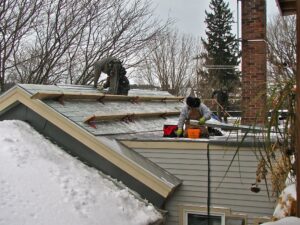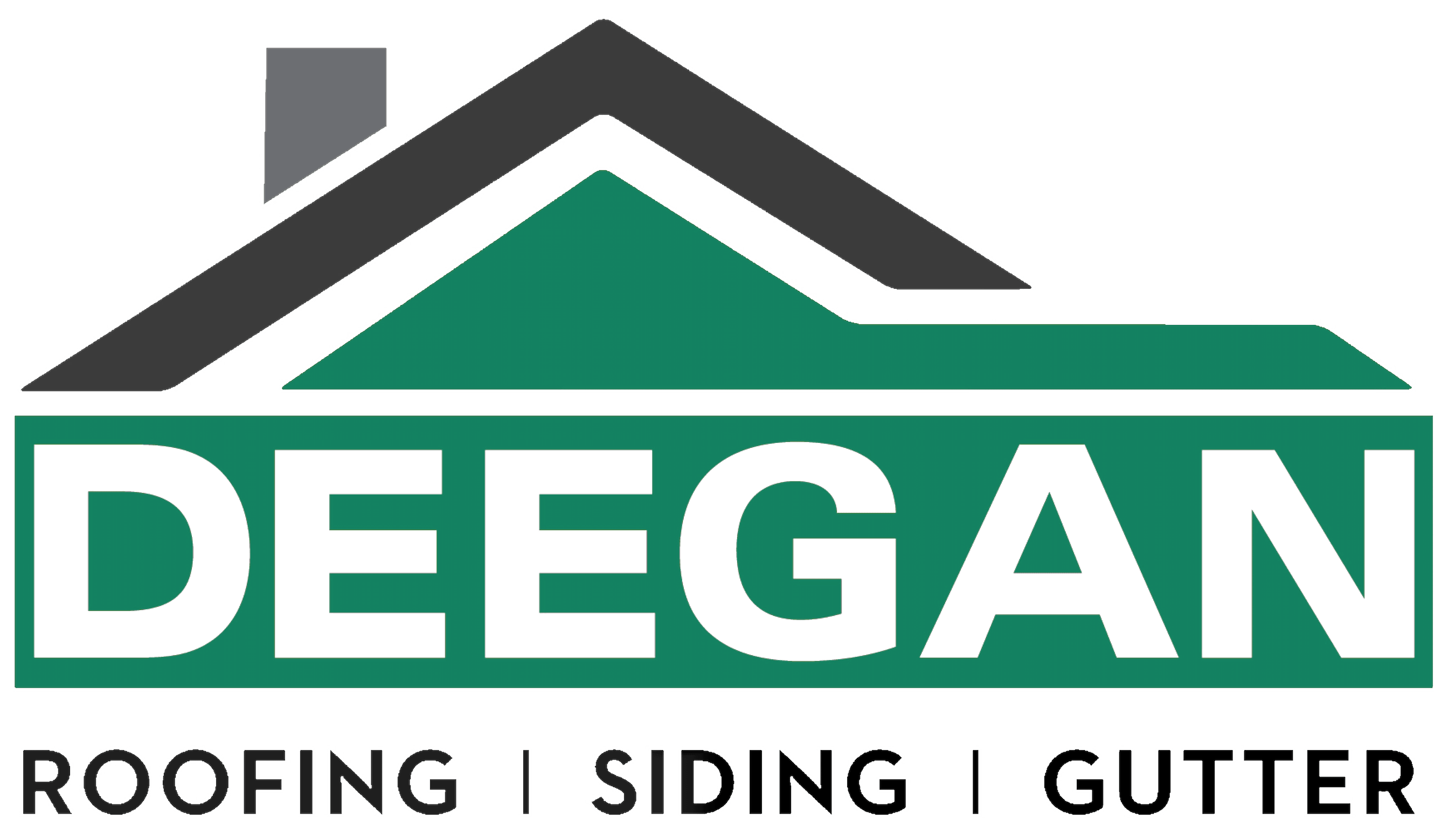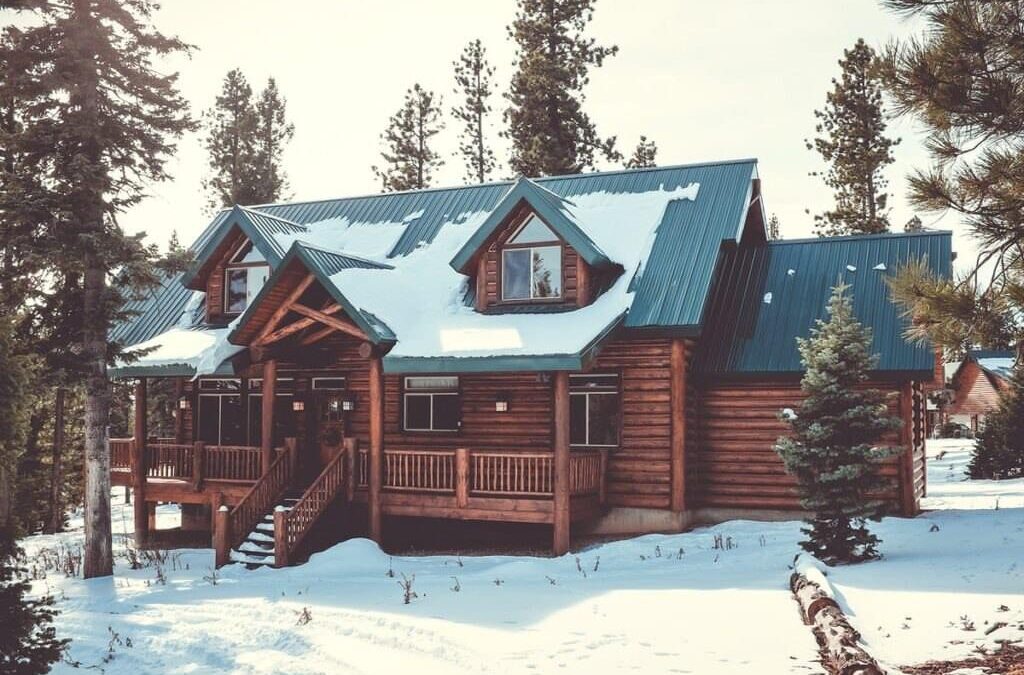New Jersey’s unpredictable weather presents significant challenges for homeowners, particularly when it comes to roof maintenance. The way weather affects your roof can lead to serious structural issues and costly repairs. From scorching summers to icy winters, these seasonal shifts can weaken roofing materials, cause leaks, and shorten the lifespan of your roof. Understanding how weather affects your roof and implementing protective measures can help extend its durability and safeguard your home from unnecessary damage. Whether it’s heavy rain, snow, or intense heat, taking the right precautions can make all the difference in protecting your investment.
How New Jersey’s Weather Affects Your Roof
Heavy Rain and Storms
Rainstorms are common in New Jersey, particularly in the spring and summer. These storms can cause:
- Water Pooling: Flat or low-slope roofs may accumulate water, leading to leaks and material degradation.
- Shingle Wear and Tear: Persistent moisture weakens asphalt shingles, causing curling and cracking.
- Gutter Overflows: Blocked gutters fail to direct water away, increasing the risk of foundation damage.
Snow and Ice Damage
New Jersey winters bring snow and ice that can severely impact your roof:
- Ice Dams: Melting snow that refreezes at the roof’s edges prevents proper drainage, leading to leaks.
- Heavy Snow Load: Excessive snow accumulation stresses the roof structure and may cause sagging.
- Freeze-Thaw Cycles: Water seeping into minor cracks expands when frozen, worsening damage over time.
High Winds and Storms
Nor’easters and strong winds can cause significant roof damage, including:
- Shingle Loss: High winds can loosen or remove shingles, exposing your home to leaks.
- Debris Damage: Flying debris during storms can puncture or crack roofing materials.
- Uplift Effects: Wind can loosen flashing and underlayment, leading to structural vulnerabilities.
Intense Heat and Sun Exposure
Hot, humid summers in New Jersey pose additional risks:
- Shingle Deterioration: UV rays weaken asphalt shingles, making them brittle over time.
- Thermal Expansion and Contraction: Temperature fluctuations cause roofing materials to expand and contract, leading to cracks.
- Moss and Algae Growth: High humidity fosters moss and algae, which can erode roofing materials.
Hail Damage
Though rare, hailstorms in New Jersey can be severe, resulting in:
- Granule Loss: Hailstones knock protective granules off asphalt shingles, reducing their durability.
- Cracks and Dents: Hail can cause visible damage to shingles, tiles, or metal roofing, leading to potential leaks.
How to Protect Your Roof from Weather Damage
Schedule Regular Roof Inspections
Routine inspections help identify and address minor issues before they escalate. Homeowners should:
- Conduct inspections at least twice a year (spring and fall).
- Look for missing shingles, leaks, or wear and tear.
- Hire a professional roofer for a comprehensive assessment.
Maintain Your Gutters
Proper gutter maintenance ensures efficient water drainage. Steps to take include:
- Cleaning gutters regularly to prevent clogs from debris.
- Installing gutter guards to minimize blockages.
- Ensuring downspouts direct water away from your home’s foundation.
Reinforce Roofing Materials
Choosing durable roofing materials suited for New Jersey’s climate enhances longevity. Consider:
- Impact-resistant shingles to withstand hail and strong winds.
- Reflective roofing materials to reduce heat absorption.
- Metal roofing for enhanced durability against extreme weather.
Prevent Ice Dams
To minimize ice dams and snow-related damage:
- Ensure proper attic insulation to maintain a consistent roof temperature.
- Install heating cables in problem areas to encourage snow melting.
- Use a roof rake to remove excess snow before it accumulates.
Trim Overhanging Trees
Storm-damaged trees pose a significant risk to your roof. Prevent damage by:
- Trimming branches that extend over or near your roof.
- Removing dead or weakened limbs before storm season.
- Keeping trees well-maintained to prevent unexpected breakage.
Repair Damage Immediately
Delaying roof repairs can lead to extensive and costly issues. Act promptly by:
- Replacing missing or damaged shingles.
- Sealing leaks to prevent further water infiltration.
- Repairing flashing around vents, chimneys, and skylights.
Consider Professional Roof Coatings
Applying a protective roof coating enhances durability and weather resistance. Benefits include:
- Improved UV resistance to prevent heat damage.
- Enhanced waterproofing to minimize leaks.
- Increased energy efficiency by reflecting sunlight and reducing cooling costs.
Additional Tips for Year-Round Roof Protection
Monitor Your Attic for Leaks
- Check your attic after heavy rain or snow for signs of water damage.
- Look for mold, mildew, or damp insulation, which can indicate leaks.
- Ensure proper ventilation to prevent excess moisture buildup.
Upgrade Roof Ventilation
- Proper ventilation reduces heat buildup in summer and prevents ice dams in winter.
- Consider ridge vents, soffit vents, or attic fans for better airflow.
- Ensure vents are not blocked by insulation or debris.
Seal Gaps and Cracks
- Inspect roof seams, flashing, and vent openings for any cracks.
- Use weather-resistant sealant to close small gaps.
- Regularly check areas around chimneys, skylights, and vents.
Final Thoughts
New Jersey’s climate can be tough on your roof, but proactive maintenance and proper care can help protect your home from weather-related damage. Regular inspections, gutter maintenance, and the right roofing materials can significantly extend the lifespan of your roof. If you need expert advice or assistance, consult a professional roofing contractor in New Jersey to ensure your home remains safe and secure year-round.
Company Contact Details
-
Brien Deegan Roof Contracting
- 📍 Address: Offices in Scotch Plains and Piscataway, NJ
- 📞 Phone: (908) 322-6405
- 🌐 Website: www.deeganroofing.com
- 📧 Email: info@deeganroofing.com
⏰ Business Hours: Monday – Friday (8 AM – 6 PM), Saturday (9 AM – 4 PM)

